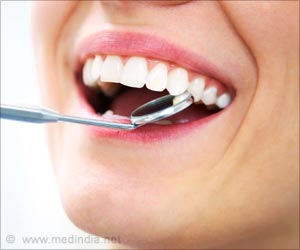How Anacardic Acids (AAs) impact oral bacteria, from an antibacterial and anti-collagenolytic perspective, as well as their biocompatibility with dental pulp stem cells is assessed by a new study.
The study was conducted by researchers at the University of Brasilia in Brasilia and was presented during an Interactive Talk presentation during the “Cariology Research-Microbiological Studies/Biofilm IV” session.
New Way of Managing Root Caries
Two hemi-synthetic saturated AA-cashew nutshell derivative compounds were selected (LDT11 and LDT409). The bacteriostatic activity was tested against Streptococcus mutans R9 and Veillonella parvula ATCC17745.
‘The potential of anti-collagenolytic substances present in cashew nutshell can reduce collagen degradation in root/dentinal caries.’
Antimicrobial capacity against S. mutans biofilms was investigated using a collagen-coated Calgary Biofilm Device (CFU and Live/Dead Confocal). Collagenases from Clostridium histolyticum, Porphyromonas gingivalis, and S. mutants were used to assess anti-collagenolytic activity.
The biocompatibility of both compounds with Human dental pulp stromal Cells (HDPSCs) was investigated in 3 different donors (DREC ethical approval 251121/HA/336). The findings were published in the International Association for Dental Research (IADR).
Advertisement
AA inhibited the growth of S. mutans and V. parvula, as well as partially inhibited bacterial collagenases (>5μg/mL). LDT11 (100μg/mL) inhibited 96% of collagenase activity. AA treatment was associated with odontoblast-like morphology, which was observed after 24h of treatment.
LDT11 at 50 ug/mL concentration had bacteriostatic activity against S. mutans and V. parvula, antimicrobial activity against mature S. mutans biofilms as well as anti-collagenolytic activity against bacterial collagenases. It was biocompatible with HDPSCs, stimulating cells proliferation and differentiation.
Source: Medindia
Advertisement



